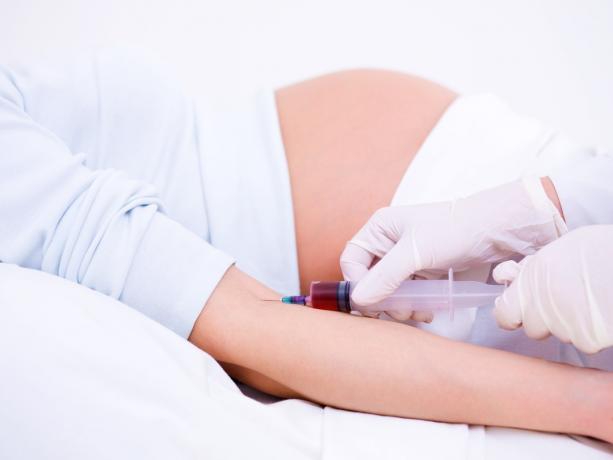Rhesus conflict is an immunological incompatibility of the blood of a pregnant woman and an unborn child. Such a pregnancy requires careful monitoring and additional examinations. Why is Rh conflict so dangerous and what should be done to avoid complications?
Such a pregnancy, as a rule, proceeds with various complications, for the prevention of which it is important to prevent the immune conflict in time with the help of administration of anti-Rho (D) immunoglobulin. Why is it dangerous?

What are the complications of Rhesus conflict
- the threat of termination of pregnancy;
- fetal hypoxia;
- anemia;
- preeclampsia;
- intoxication syndrome;
- premature birth;
- hemolytic disease;
- intrauterine fetal death.
What is hemolytic disease and why is it dangerous? One of the dangerous complications of the incompatibility of the blood of the mother and the child according to the Rh factor or blood group is hemolytic disease of the fetus and newborn Hemolytic disease occurs in 3-6% of cases, among immunoconflict pregnancies. In this disease, the mother's blood mixes with the fetus's blood. Antibodies that are formed in the body of a woman enter the blood of the fetus through the placenta and destroy red blood cells, which leads to intoxication of the child with hemoglobin breakdown products.
Hemolytic disease of the newborn has three forms:

- icteric - increased bilirubin, which appears as a result of the destruction of red blood cells, can cause damage to brain cells, deafness, cerebral palsy and developmental delay in the child. This happens if bilirubin rises to critically high values. This form of HDN is manifested by the icterus of the skin and mucous membranes of the newborn. This is the most common form of hemolytic disease.
- anemic- indicates a low level of hemoglobin and hematocrit. It is manifested by excessive pallor of the skin of the newborn. Occurs in 10-20% of cases.
- edematous- the most dangerous form of HDN, has the highest percentage of deaths. This form of HDN is evidenced by anemia, dropsy (fluid accumulation in the abdominal cavity), pleural effusions (fluid accumulation in the pleural cavity).
Why is the Rh conflict dangerous for a woman? Rhesus conflict does not pose any danger to the female body, the only complications can arise in the event of intrauterine death of the fetus, this is fraught with inflammatory processes.

Treatment and prognosis.Treatment and course of the disease depends on the form and severity of HDN. In mild and moderate forms, after treatment, children grow and develop in the same way as their peers. With a bilirubin level of 257-342 micromol / l or more, 1/3 of children may have deviations in neuropsychic development. Anemia can persist for several months. Children with disorders of the central nervous system require careful medical supervision by a neurologist, ophthalmologist and pediatrician. Newborns with hemolytic disease are not vaccinated in the hospital.
Prevention.For the prevention of Rhesus conflict during pregnancy, it is mandatory to determine the blood group and Rhesus when registering.
When registering a woman with a negative Rh, it is imperative to find out:
- Have you had a previous blood transfusion?
- whether there were abortions, miscarriages;
- whether children were born with such a disease.
A woman with a negative Rh, in the event of a miscarriage or abortion, must be given an injection of anti-Rhesus immunoglobulin within 72 hours.
In addition, pregnant women regularly undergo a blood test for Rh antibodies. In case of their rapid increase, a woman needs treatment with anti-D-globulin (anti-Rhesus).
Also be sure to find out what is the danger of a low placenta during pregnancy



